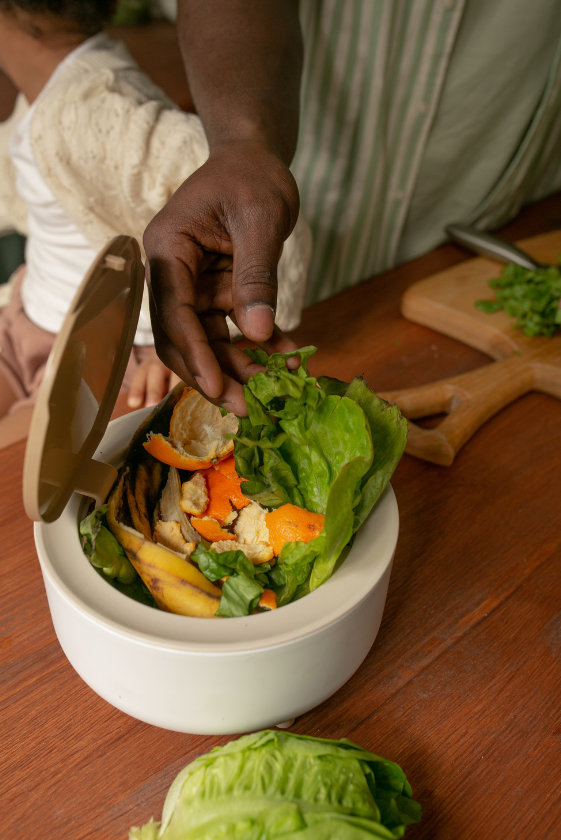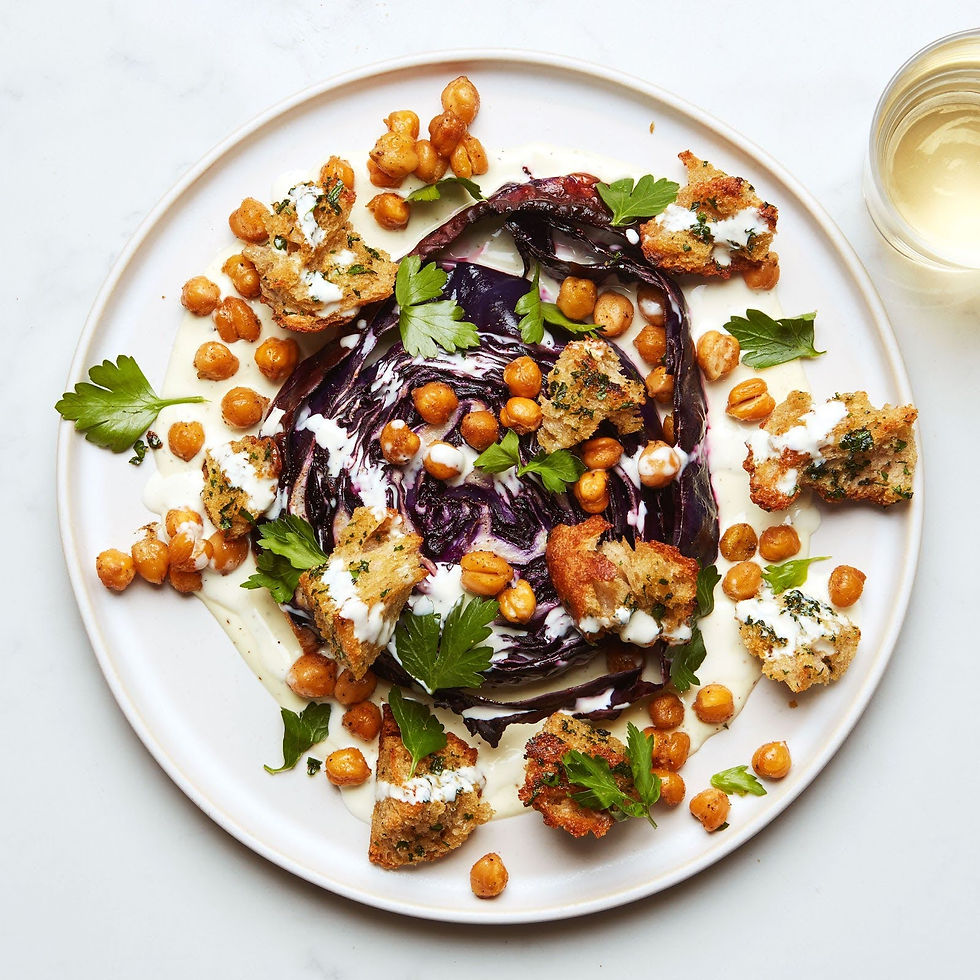10 Things You Can Do with Food Scraps to Reduce Food Waste
- ForestFoods
- Jun 8, 2024
- 6 min read
Food waste is a significant issue, but with a little creativity, you can transform your food scraps into something useful and environmentally friendly. Here are ten ideas to help you reduce food waste and make the most of every bit of produce from Forest Foods.

1. Compost Your Scraps
Composting is one of the best ways to recycle food scraps. By turning vegetable peels, fruit rinds, and other organic waste into compost, you create nutrient-rich soil that can be used to enrich your garden. Composting reduces the amount of waste sent to landfills and provides a sustainable way to feed your plants.
How to Start:
Create a compost pile or use a compost bin: Choose a spot in your garden for a compost pile or purchase a compost bin. Compost bins are particularly useful in smaller spaces.
Add green materials (vegetable scraps, fruit peels, coffee grounds) and brown materials (leaves, paper, cardboard) in layers: The right balance of green and brown materials helps the compost break down efficiently.
Turn the compost regularly to aerate it: Use a garden fork or shovel to turn the compost pile every few weeks. This introduces oxygen that helps speed up the decomposition process.
After a few months, you’ll have rich, dark compost to use in your garden: The compost will be ready when it’s dark, crumbly, and has an earthy smell. Use it to enrich garden soil, pot plants, or top-dress lawns.
2. Make Vegetable Stock
Leftover vegetable scraps such as carrot tops, onion skins, celery ends, and herb stems can be used to make a flavourful vegetable stock. This stock can be used as a base for soups, stews, and sauces, adding depth and richness to your dishes.
How to Make Vegetable Stock:
Collect vegetable scraps in a freezer bag until you have enough to fill a pot: This helps you accumulate enough scraps without them spoiling.
Add the scraps to a large pot and cover with water: You can also add herbs, garlic, and bay leaves for extra flavour.
Bring to a boil, then simmer for about an hour: This allows the flavours to infuse into the water.
Strain the stock and store it in jars or freezer bags for future use: Vegetable stock can be frozen for up to six months. Use it as a base for soups, stews, or to cook grains like rice and quinoa.
3. Create Natural Fertiliser with Eggshells
Crushed eggshells can be used as a natural fertiliser for your garden. They are rich in calcium, which helps strengthen plant cell walls and can prevent blossom end rot in plants like tomatoes.
How to Use Eggshells:
Rinse the eggshells and let them dry: This prevents any odours and makes them easier to crush.
Crush them into small pieces or grind them into a powder: You can use a mortar and pestle or a blender.
Sprinkle the crushed shells around the base of your plants or mix them into the soil: Eggshells also deter slugs and snails when scattered around plants.
4. Regrow Vegetables from Scraps
Many vegetables can be regrown from scraps, providing you with a continuous supply of fresh produce. This is a fun and educational activity, especially for children.
Vegetables You Can Regrow:
Spring Onions: Place the root ends in a glass of water and watch them regrow. Change the water every few days, and once new green shoots appear, plant them in soil.
Lettuce: Place the base of the lettuce in a shallow dish of water and new leaves will sprout. Once roots develop, transplant the lettuce into soil.
Carrots: Place the tops in a dish of water and new greens will grow, which are edible and nutritious. The carrot tops won’t regrow a new carrot, but they make a tasty addition to salads.
5. Use Citrus Peels for Cleaning
Citrus peels, such as those from oranges, lemons, and limes, can be used to make a natural and effective household cleaner. The oils in citrus peels have antibacterial properties and leave a fresh scent.
How to Make Citrus Cleaner:
Fill a jar with citrus peels: Use peels from any citrus fruit you have on hand.
Cover the peels with white vinegar: Vinegar is a natural disinfectant that helps dissolve grime and kill bacteria.
Let the mixture sit for two weeks, shaking occasionally: This allows the citrus oils to infuse into the vinegar.
Strain the liquid and dilute with equal parts water. Use as an all-purpose cleaner: This cleaner works well on countertops, floors, and glass.
6. Make Herb-Infused Oils
If you have leftover herb stems or slightly wilted herbs, you can use them to make herb-infused oils. These oils are perfect for cooking, salad dressings, or drizzling over dishes for added flavour.
How to Make Herb-Infused Oil:
Wash and dry the herbs: Removing excess moisture helps prevent the growth of mould.
Place the herbs in a clean, dry jar: Use a mix of herbs like rosemary, thyme, and basil for a robust flavour.
Fill the jar with olive oil, making sure the herbs are fully submerged: This ensures the herbs infuse properly and prevents them from spoiling.
Seal the jar and store it in a cool, dark place for about two weeks: Shake the jar every few days to help distribute the flavours.
Strain the oil into a clean bottle: The herb-infused oil can be stored in the fridge for up to a month.
7. Bake Vegetable Crisps
Turn potato peels, carrot tops, and beetroot skins into delicious and healthy vegetable crisps. Baking these scraps can create a tasty snack that reduces waste and makes use of the entire vegetable.
How to Make Vegetable Crisps:
Preheat the oven to 180°C (350°F): A hot oven ensures the crisps turn out crunchy.
Toss the vegetable peels with olive oil, salt, and your favourite spices: Try paprika, garlic powder, or chilli flakes for extra flavour.
Spread them in a single layer on a baking tray: Overlapping will result in unevenly cooked crisps.
Bake for 15-20 minutes, until crisp and golden: Keep an eye on them to prevent burning. Once baked, let them cool before enjoying.
8. Create a Garden Tea
Vegetable scraps and herbs can be used to make a nutrient-rich tea for your garden. This garden tea can be used to water your plants, providing them with a boost of nutrients.
How to Make Garden Tea:
Fill a bucket with vegetable scraps and herbs: Include items like banana peels, eggshells, and coffee grounds.
Cover with water and let it sit for a few days, stirring occasionally: This process allows the nutrients to leach into the water.
Strain the liquid and use it to water your plants: This nutrient-rich tea is great for feeding vegetables, flowers, and houseplants.
9. Make a Face Mask
Certain vegetable scraps can be used to create nourishing face masks. For example, cucumber peels can hydrate and soothe the skin, while avocado skins can provide moisture and nutrients.
How to Make a Cucumber Face Mask:
Blend cucumber peels with a little yoghurt and honey: Yoghurt has exfoliating properties, and honey is a natural humectant.
Apply the mixture to your face and leave it on for 15-20 minutes: This mask is cooling and soothing, perfect for sensitive skin.
Rinse off with warm water: Follow up with your favourite moisturiser.
10. Prepare Pickles and Ferments
Pickling and fermenting are excellent ways to preserve leftover vegetables and enhance their flavour. Vegetables like cucumbers, radishes, and carrots can be pickled or fermented to create tangy and delicious snacks.
How to Pickle Vegetables:
Slice the vegetables and place them in a clean jar: You can also add spices like dill, mustard seeds, and peppercorns.
Make a pickling solution by boiling water, vinegar, salt, and sugar: Use a 1:1 ratio of water to vinegar for a tangy brine.
Pour the solution over the vegetables and seal the jar: Make sure the vegetables are fully submerged.
Let it sit in the fridge for at least a week before eating: The longer the vegetables sit, the more flavour they will develop.
By implementing these ideas, you can reduce food waste, save money, and make the most of the fresh, organic produce from Forest Foods. Each of these methods not only helps to minimise waste but also adds value to your kitchen and garden. So, the next time you have leftover vegetables or food scraps, consider these creative and practical solutions to turn waste into wonderful, usable products.

Additional Tips for Reducing Food Waste
Plan Your Meals: Before you go shopping, plan your meals for the week. Make a list of the ingredients you need and stick to it to avoid buying unnecessary items.
Store Food Properly: Proper storage can extend the life of your produce. Keep your fridge organised and use airtight containers to prevent spoilage.
Use Leftovers Creatively: Incorporate leftovers into new meals.





Comments